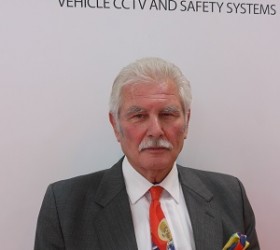Stopping the clocks going back on Sunday could save hundreds of children’s lives on UK roads, says former Chief Constable Keith Hellawell. Persisting with British Summer Time throughout the whole year would significantly reduce road casualties, particularly to pedestrians, cyclists and schoolchildren, according to Hellawell, who was Chief Constable of both Cleveland and West Yorkshire.
 Hellawell has conducted using official Department for Transport statistics which shows that the number of road fatalities and casualties hits a peak in October, November and December, despite the fact that road usage actually drops significantly in those months.
Hellawell has conducted using official Department for Transport statistics which shows that the number of road fatalities and casualties hits a peak in October, November and December, despite the fact that road usage actually drops significantly in those months.
More than 1,200 children have been killed on the roads in the past 10 years and the peak time for pedestrian casualties is just after 4pm on weekdays when children are making their way home from school.
Last year, the total number child casualties on Britain’s roads was 16,604 – more than 45 a day and an increase of 6% on 2013, according to Department for Transport figures.
The number of children killed or seriously injured was 2,060 – almost six a day and a rise of 3% on 2013.
British Summer Time comes to an end at 2am on Sunday (Oct 25) when the clocks go back – giving Britons an extra hour in bed but bringing twilight forward to 4.47pm.
By the time of the shortest day on December 22, there will be just 7 hours and 49 minutes of daylight and twilight comes as early as 3.53pm.
Hellawell compiled the research into child casualties for motor safety company SmartWitness where he is non-executive chairman.
SmartWitness, makers of Britain’s most popular dash-cams, found that the numbers of casualties per mile rises steeply in the last three months of the year because driver and pedestrian reaction times are much worse in the dark.
Hellawell said: “Driver and pedestrian reaction times are considerably reduced at night-time and even at urban road speeds of 30mph this can mean the difference between life and death on the roads.
“When the clocks go back at the end of October most schoolchildren are making their way home in the dark and this contributes to a great number of casualties on the roads.”
Hellawell added: “The SmartWitness research has been taken from Department for Transport statistics and they clearly show that the number of accidents in the evening is significantly higher than those in the morning – around 37% higher – so by sticking with British Summer Time and therefore having lighter afternoons and darker mornings it’s statistically sound to expect that there would be hundreds of fewer road casualties in the last three months of the year.
“The last time there was any serious research done on increased casualties due the end of British Summer Time was back in 1970, and there needs to be more modern analysis implemented at the very least because children’s and other pedestrians’ lives are at stake.”
Hellawell, who joined SmartWitness last year and has spent more than 50 years campaigning for improved road safety, said the fourth quarter – October, November and December – was by far the deadliest time on Britain’s roads, despite higher traffic volumes in the spring and summer.
He said: “The highest rates of vehicle usage comes in Quarter 3 (July, August, September) of pretty much every year since records began and yet despite this fact, the casualty rates are higher in Quarter 4. The casualty figures are lower in Quarter 1, when it also gets dark early in January and February, but this is because there are far fewer vehicles on the roads at this time of year due to the bad weather. Twilight comes much later in March, too – as late as 7.26pm when British Summer Times begins again on March 27 next year.
“In the past four consecutive years, the number of deaths per mile has been highest in the last three months of the year, after the clocks have gone back. Generally it is found that colder weather conditions lead to fewer pedestrian casualties as people use other forms of transport that are less open to the elements, but the statistics clearly show an increase which tends to point to poor light conditions as being the main cause.”
Hellawell has launched a successful business career since leaving policing. He was also appointed ex-Premier Tony Blair’s ‘drugs czar’ in 1998.
SmartWitness makes Britain’s most popular vehicle CCTV safety systems. Sales have increased 30% in the last year as more drivers use dash cams to cut insurance bills and guard against cash-for-crash fraudsters.
Just 2% of accident captured on SmartWitness cameras result in disputed insurance claims against an industry norm of 40% of all motor claims.
Deaths per Billion Miles on UK roads, according to Department for Transport figures
2014
Quarter 1 5.15
Quarter 2 5.41
Quarter 3 5.57
Quarter 4 6.67
2013
Q1 4.8
Q2 5.62
Q3 5.85
Q4 6.18
2012
Q1 5.75
Q2 5.2
Q3 5.94
Q4 6.24
2011
Q1 6.18
Q2 6.24
Q3 6.25
Q4 6.3
![]()








